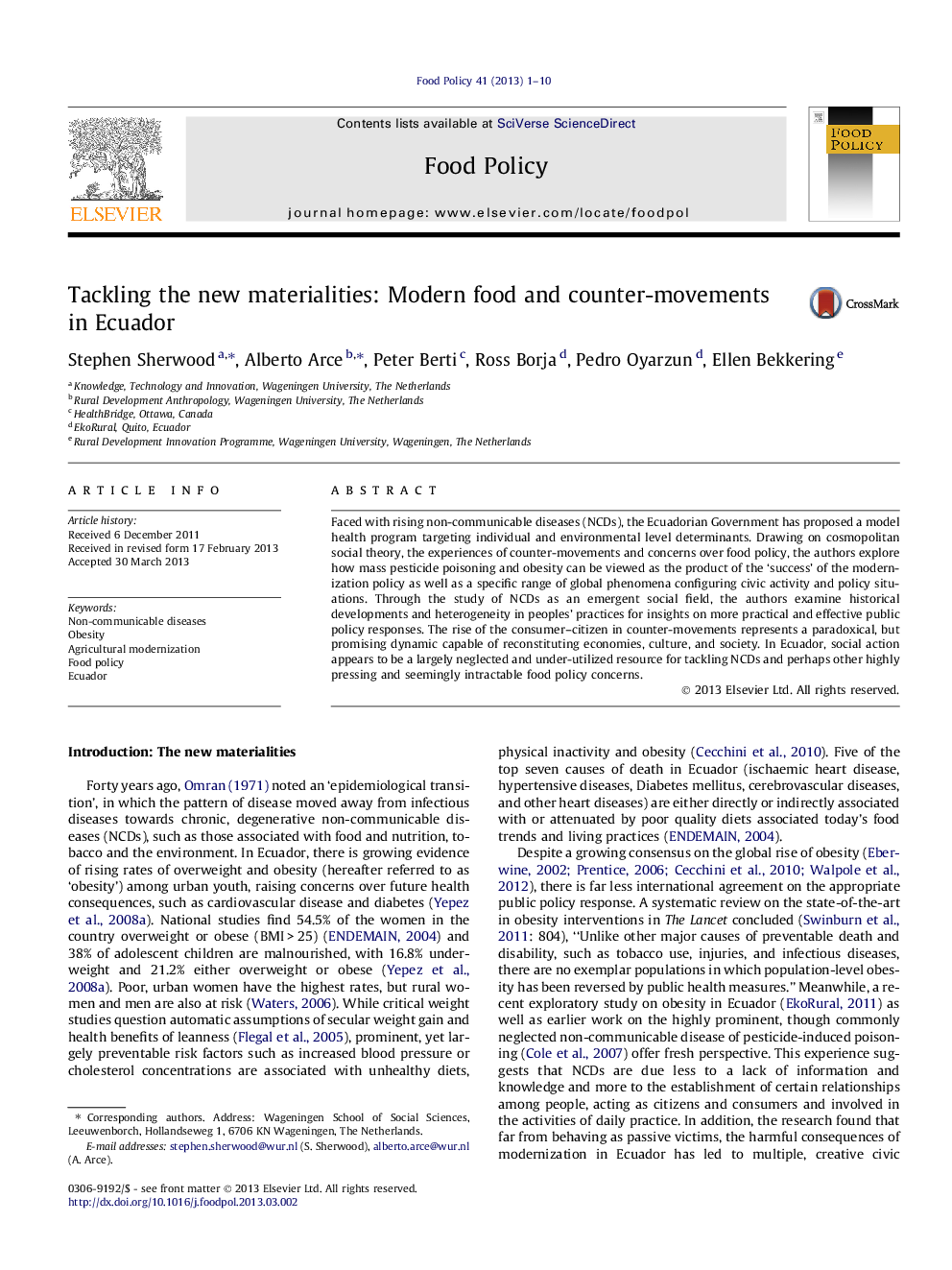| Article ID | Journal | Published Year | Pages | File Type |
|---|---|---|---|---|
| 5070633 | Food Policy | 2013 | 10 Pages |
Abstract
Faced with rising non-communicable diseases (NCDs), the Ecuadorian Government has proposed a model health program targeting individual and environmental level determinants. Drawing on cosmopolitan social theory, the experiences of counter-movements and concerns over food policy, the authors explore how mass pesticide poisoning and obesity can be viewed as the product of the 'success' of the modernization policy as well as a specific range of global phenomena configuring civic activity and policy situations. Through the study of NCDs as an emergent social field, the authors examine historical developments and heterogeneity in peoples' practices for insights on more practical and effective public policy responses. The rise of the consumer-citizen in counter-movements represents a paradoxical, but promising dynamic capable of reconstituting economies, culture, and society. In Ecuador, social action appears to be a largely neglected and under-utilized resource for tackling NCDs and perhaps other highly pressing and seemingly intractable food policy concerns.
Related Topics
Life Sciences
Agricultural and Biological Sciences
Food Science
Authors
Stephen Sherwood, Alberto Arce, Peter Berti, Ross Borja, Pedro Oyarzun, Ellen Bekkering,
